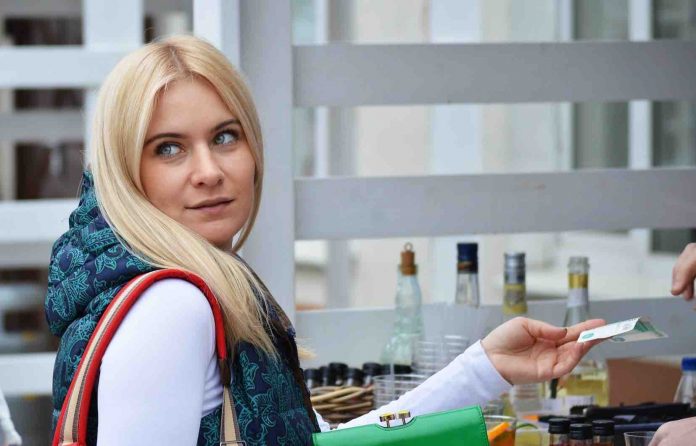Researchers from University of Queensland, University of Melbourne, and Universidad Finis Terrae published a new paper in the Journal of Marketing that studies consumer resistance to a nationwide plastic bag ban implemented in Chile in 2019.
The study, forthcoming in the Journal of Marketing, is titled “How Do I Carry All This Now?’: Understanding Consumer Resistance to Sustainability Interventions” and is authored by Claudia Gonzalez-Arcos, Alison M. Joubert, Daiane Scaraboto, and Jörgen Sandberg.
As environmental crisis challenges accelerate, governments are searching for solutions to reduce the negative impacts of economic activity. One popular measure has been to ban disposable plastic bags. Bans on plastic bags may seem like an easy way to reduce plastic pollution, but are often met with strong pushback by consumers, retailers, and other members of society.
The researchers studied consumer resistance to a nationwide plastic bag ban implemented in Chile in February 2019 with the goal of answering the following questions: What causes consumer resistance to sustainability interventions such as bans on plastic bags? And how can consumer resistance be reduced to make such interventions more effective? They conducted interviews, observed consumers, and collected documents, news articles, and social media posts related to the Chilean ban, starting in 2013 when an initial ban in coastal areas was announced until four months after the implementation of the ban in the entire country in 2019.
Gonzalez-Arcos says, “We discovered that consumers refuse to accept or support a sustainability intervention because the individual behaviors being targeted–in this case using disposable plastic bags for shopping–are not separate from, but embedded in, social practices.” Social practices are activities, materials, and meanings that are similarly understood and shared by a group of people. Eating, cooking, shopping, driving, and reading are examples of social practices shared by large groups. These practices determine people’s way of life and, to a large extent, who they are. From this perspective, a behavior such as using a plastic bag to carry groceries is simply a performance of the socially shared, habituated practice of shopping.
An intervention like banning plastic bags triggers change in the social practice of shopping because plastic bags are one of the materials that constitute this practice. Plastic bags are used in many shopping activities (bagging groceries, carrying them home) and meanings (convenience, speed). To change the social practice of shopping after a plastic bag ban, consumers need to navigate three processes: (1) sensemaking, which means understanding and developing new meanings for the changing shopping practice; (2) accommodating, which means developing new competencies for using and handling the new materials used to shop; and (3) stabilizing, which means performing the changed practice often and efficiently. Consumers do not find these processes easy: engaging in them disrupts routines, lifestyles, and even consumers’ perceptions of themselves.
In addition to changed social practices such as shopping, consumers face other challenges that prompt them to resist plastic bag bans. Plastic bags and other sustainability interventions often fail to acknowledge that individual actions are part of broader social practices and aim for individual behavioral change rather than change to the social practice itself. Consequently, consumers face three major challenges: (1) battles about who is responsible for making practices more sustainable; (2) unsettling emotions brought about by the changing practice; and (3) changes to other linked practices that dismantle their ways of life. Once these reasons for consumer resistance are known, they provide greater clarity around why consumers will push back against sustainability interventions.
“Consumer resistance interferes with social practice change, which significantly undermines the effectiveness of the sustainability intervention. Our findings show policy makers and other agents involved in sustainability interventions that changing social practices–not individual behaviors–should be their primary goal,” explains Joubert. The study presents a framework for designing and managing practice-based sustainability interventions that considers the role of consumer resistance.
To plan and design a practice-based intervention, the researchers recommend the following steps:
Identify the practice being targeted (e.g., shopping), and how it is likely to be disrupted (e.g., material will be eliminated–plastic bags).
Distribute responsibility for change among those involved in the practice (e.g., consumers, retailers, bag manufacturers, government).
Determine potential emotions that may manifest (positive to leverage and negative to placate).
Identify links between the targeted practice and other social practices (e.g., the plastic bags used in shopping are also used for garbage and waste management).
Next, to monitor and adjust practice-based interventions if consumer resistance emerges, these three main strategies are recommended:
Refocus sensemaking if consumers are experiencing tension and lacking focus.
Encourage accommodation if consumers are avoiding risks and restricting their experimentation during the change process.
Accelerate stabilization if consumers are grappling with discomfort and do not seem to be able to settle with a new version of the social practice.








